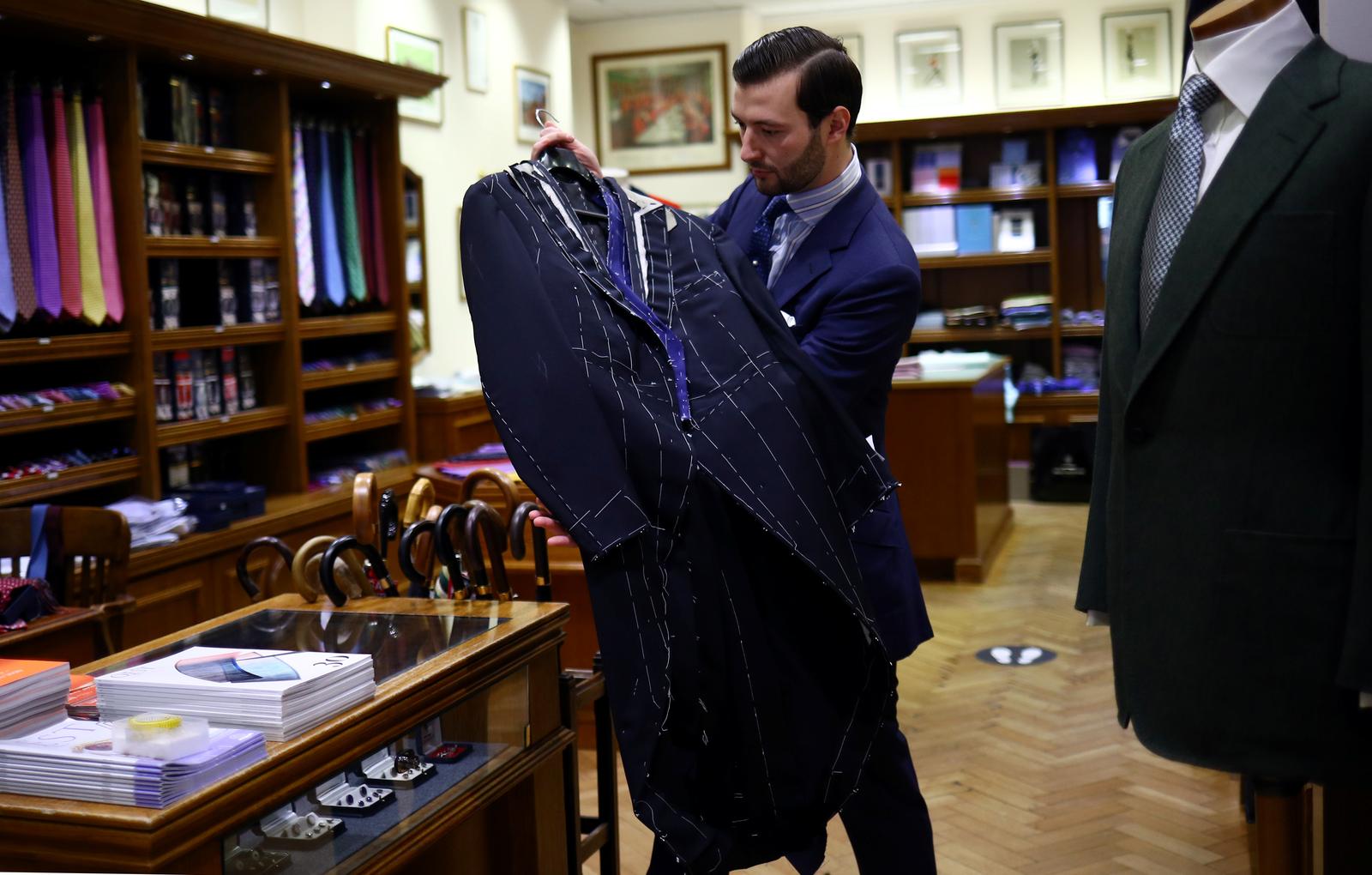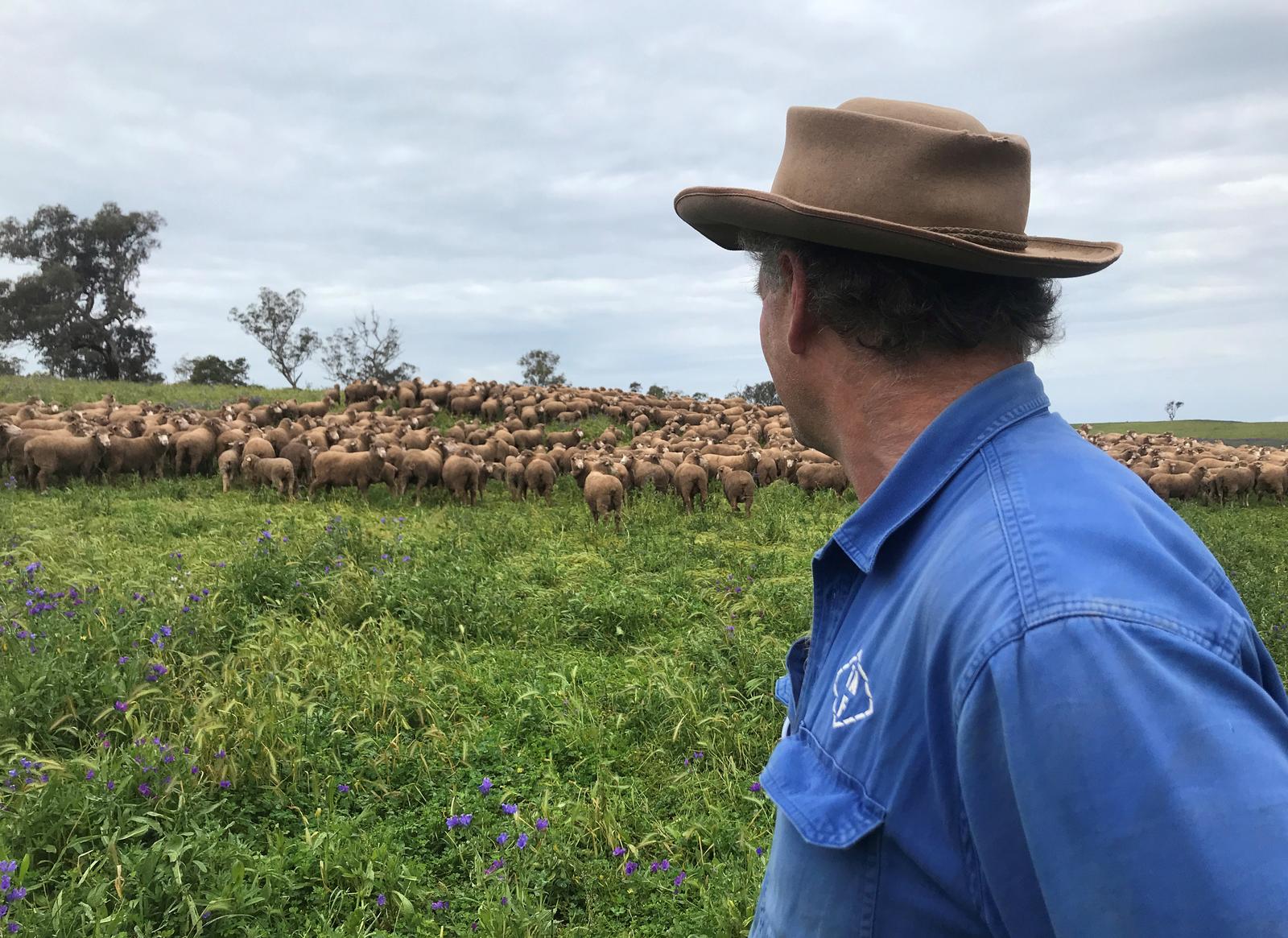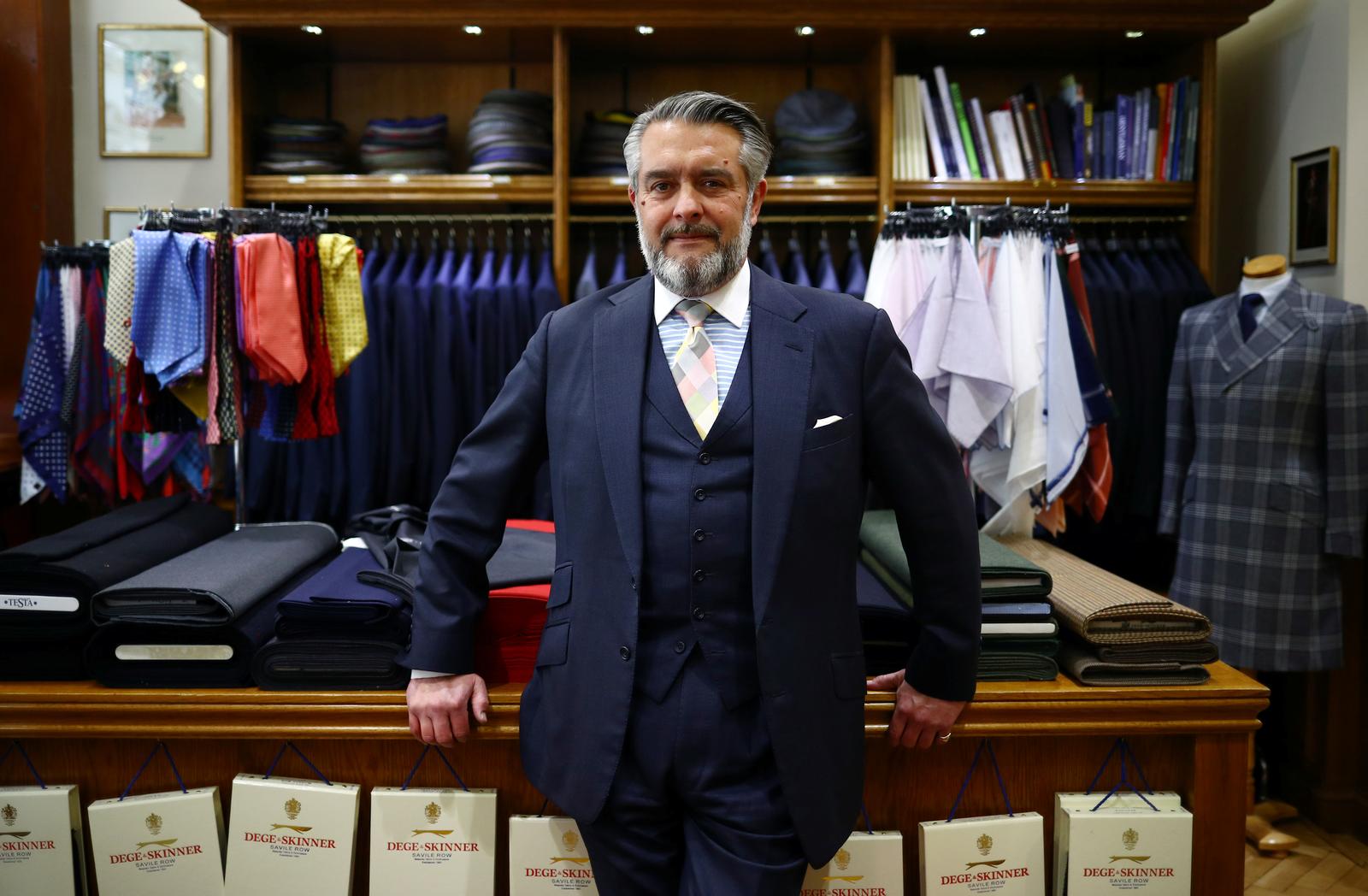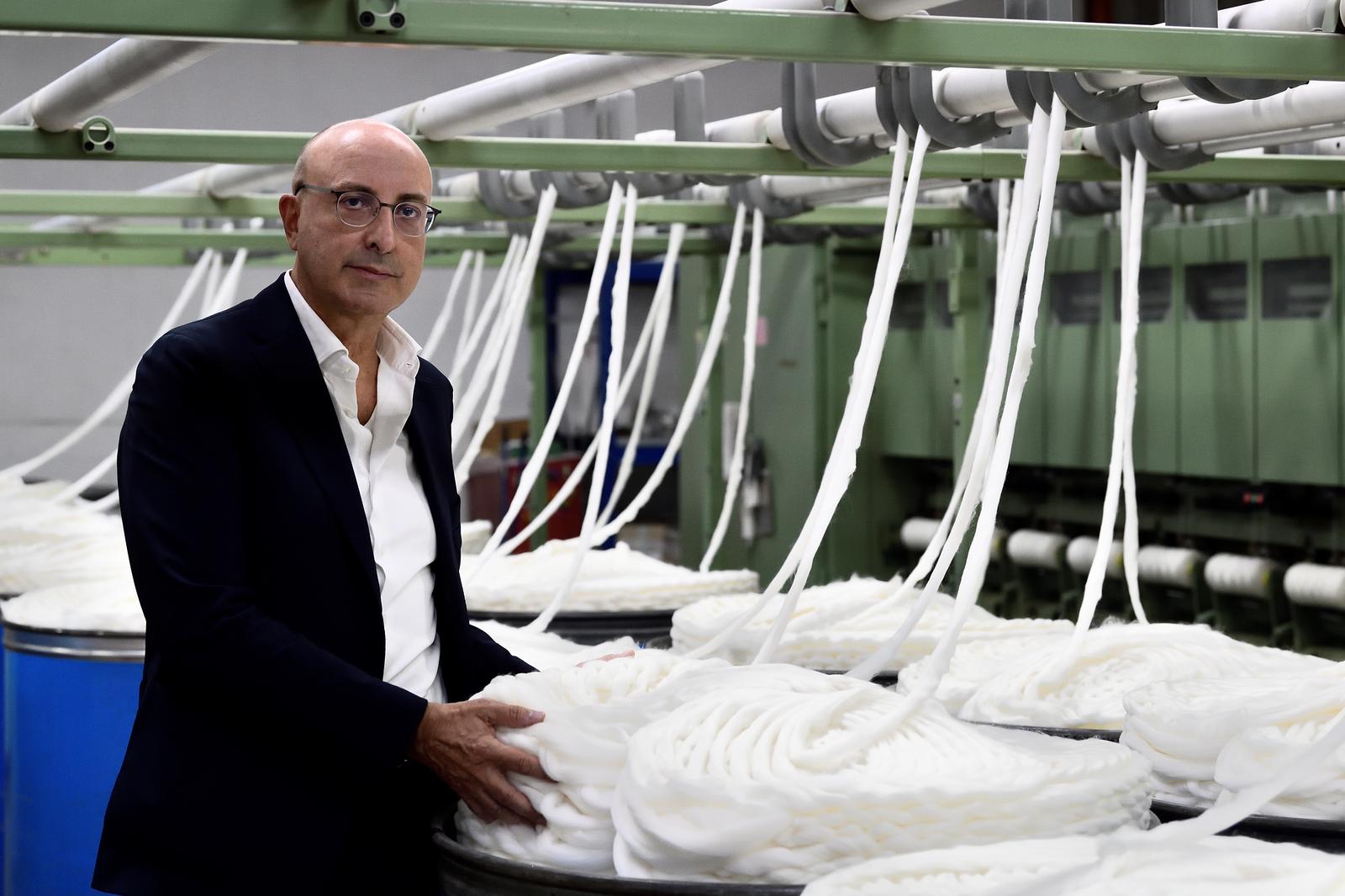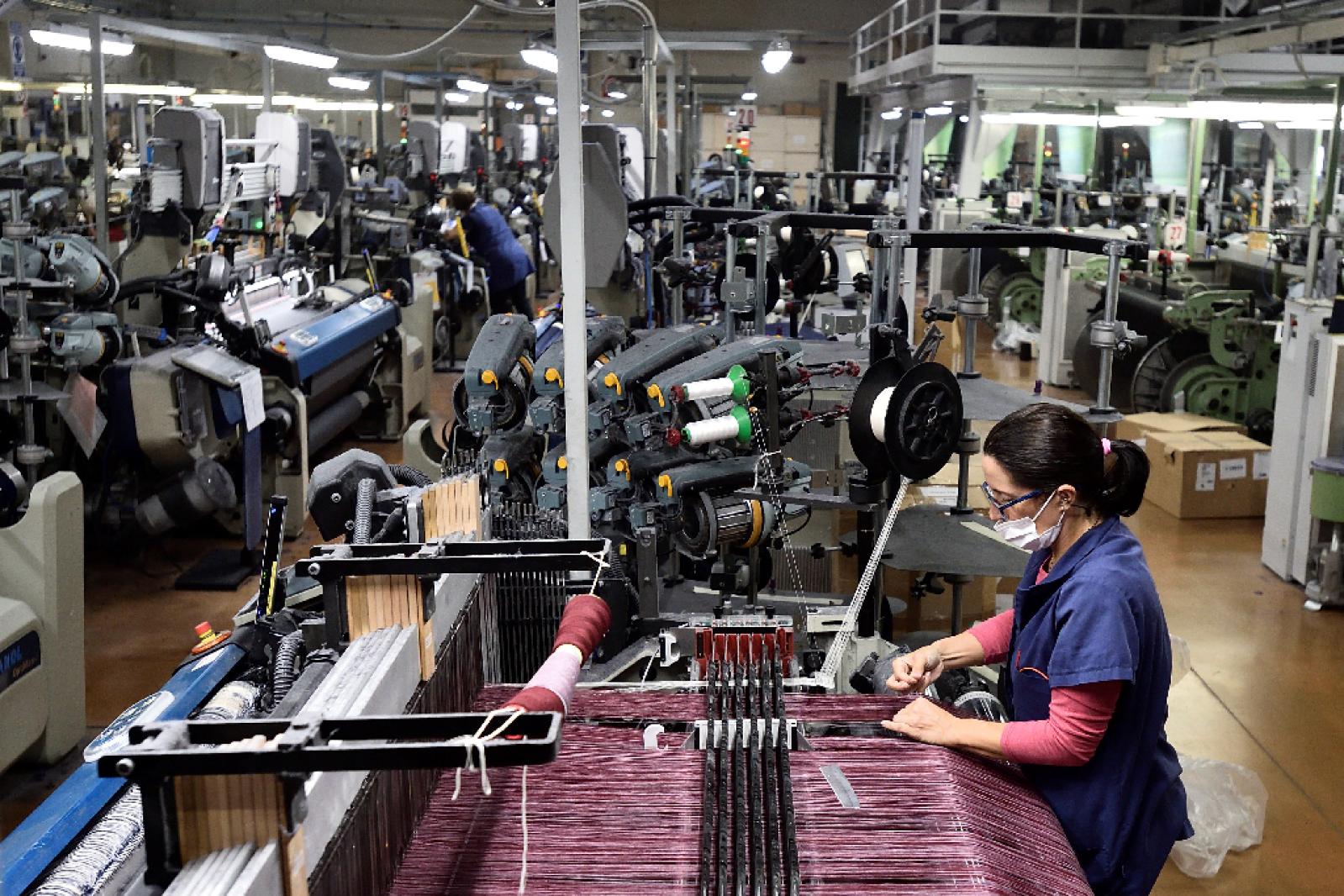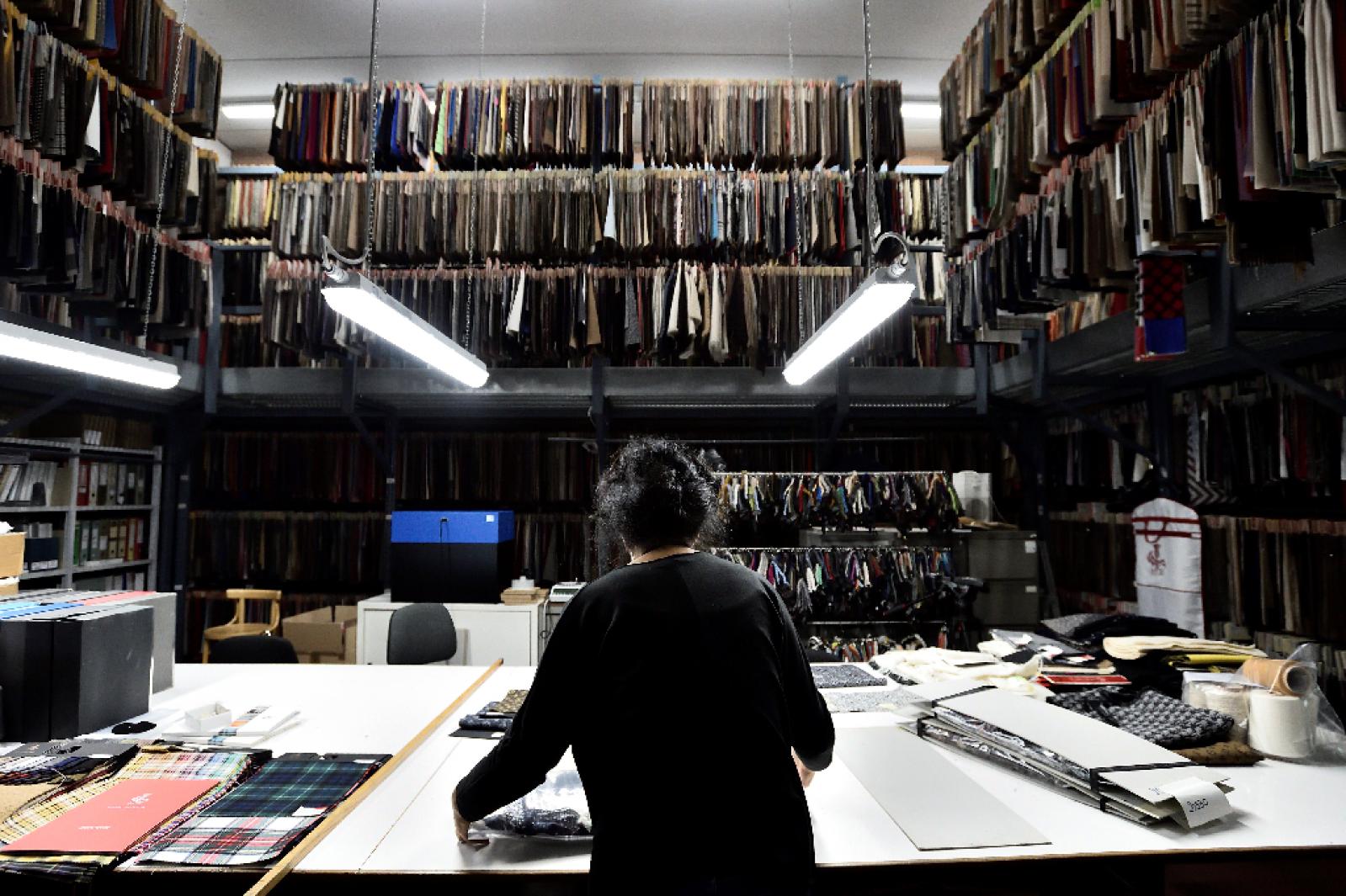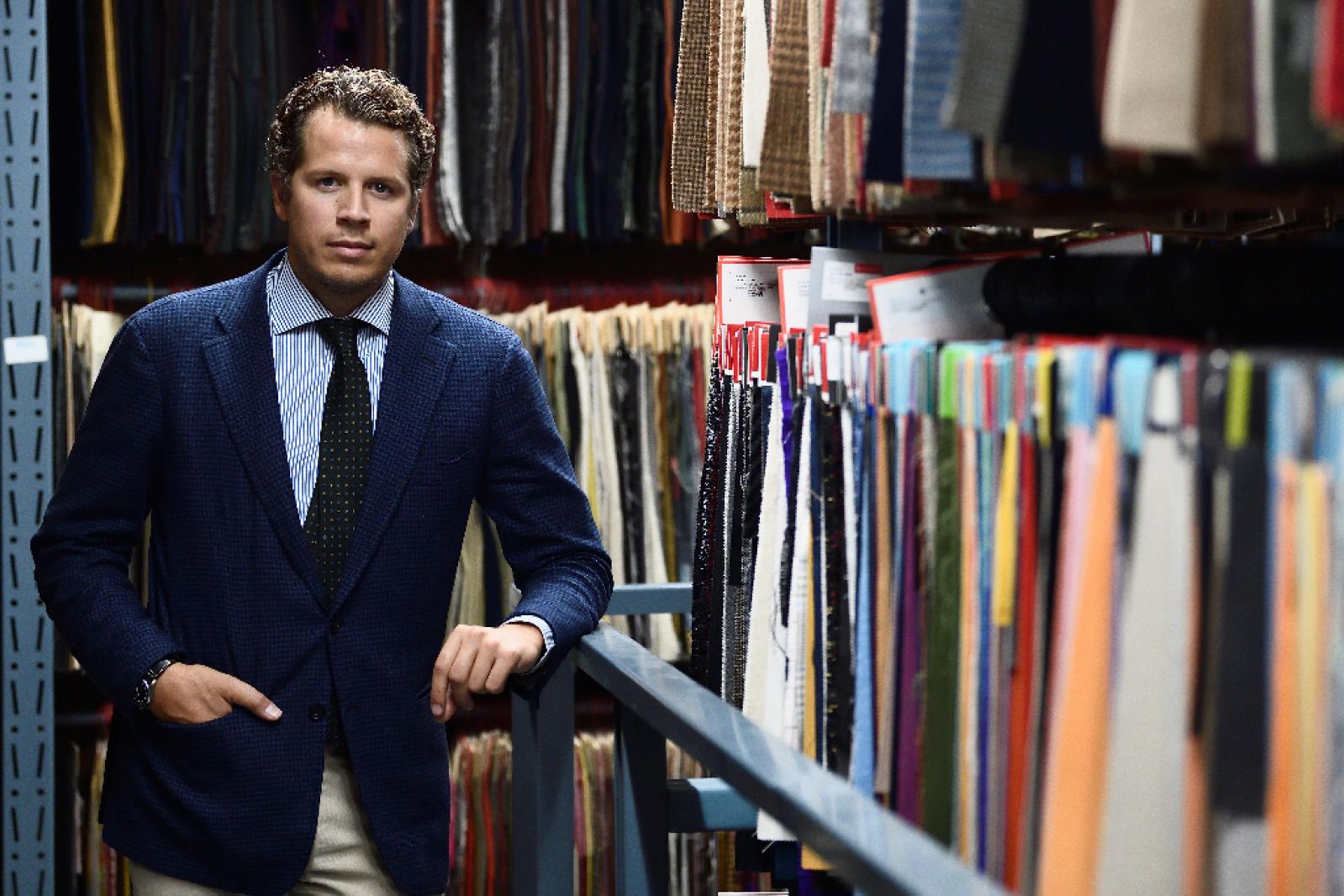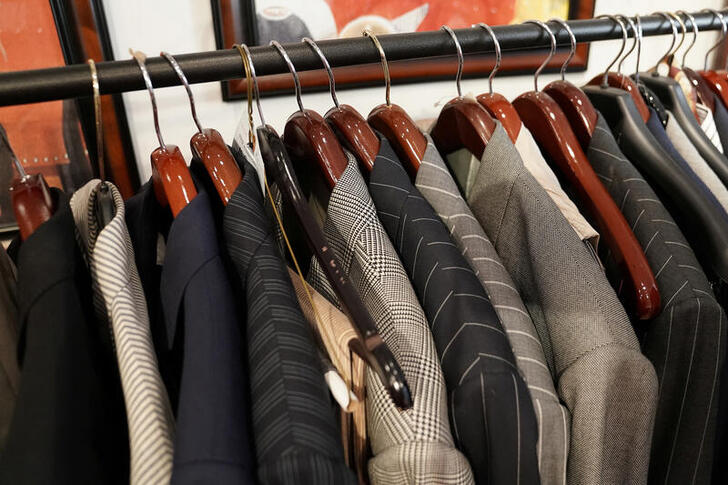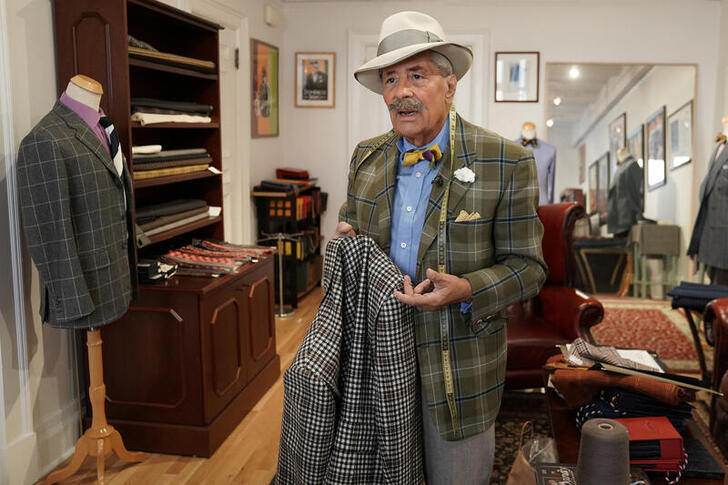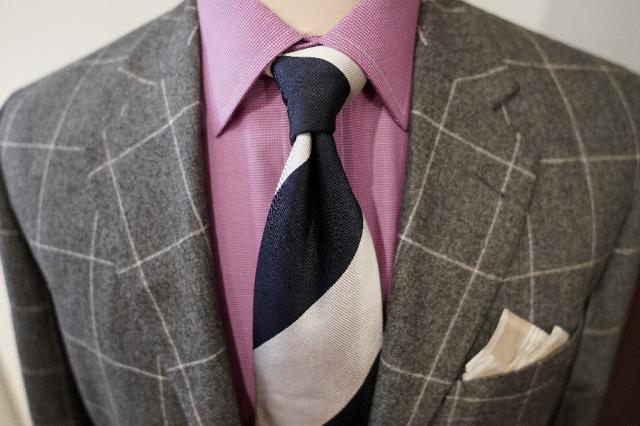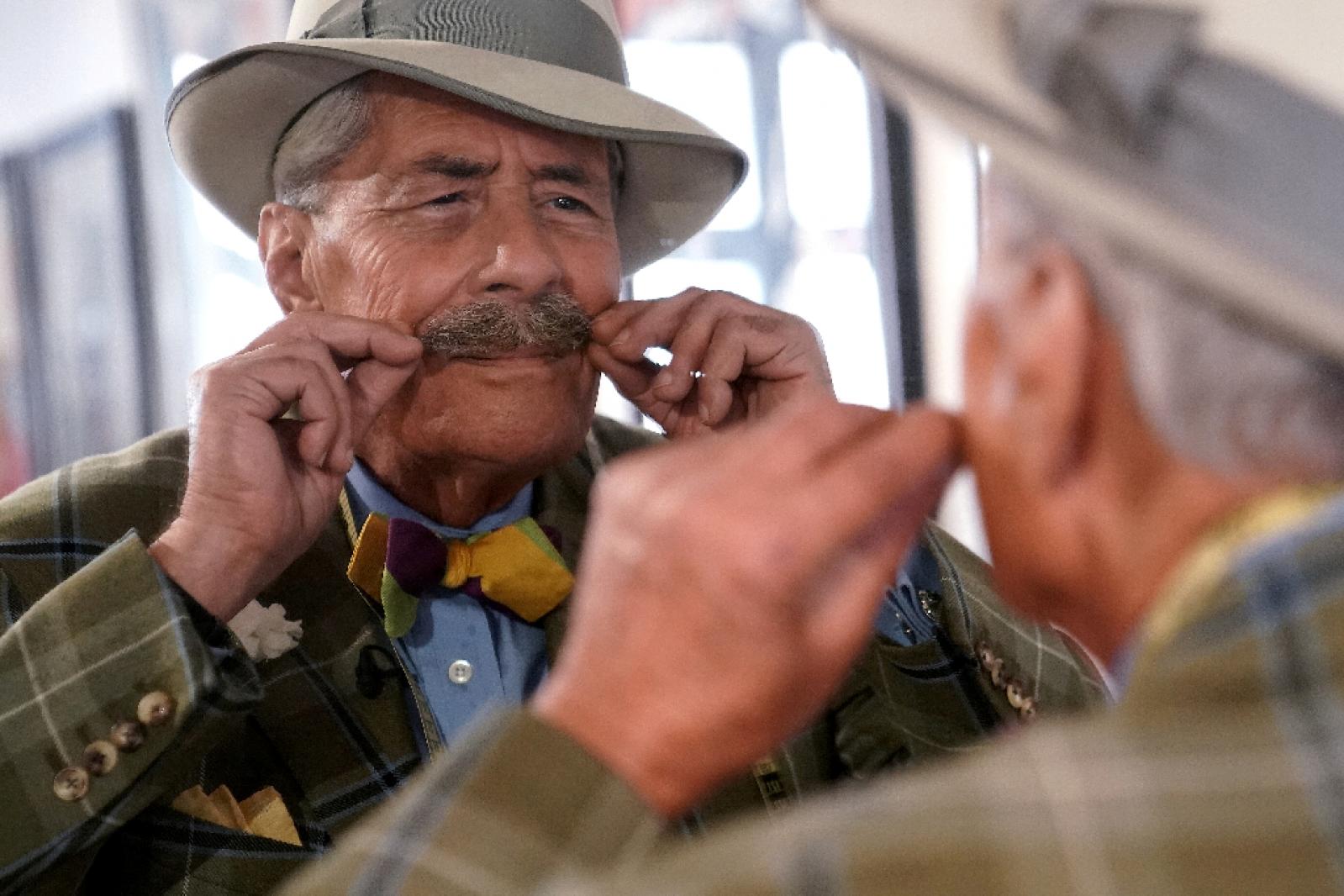MILAN/SYDNEY/LONDON – Italian luxury designer Brunello Cucinelli makes men’s suits that sell for up to 7,000 euros ($8,200). But even he - like most people across the globe - hasn’t worn a suit for months, let alone bought one.
“We’ve all been locked away at home, so this is the first jacket I have put on since March,” Cucinelli told Reuters in Milan as he presented his latest collection in September, wearing a light grey blazer.
Most people in “white-collar” jobs are working from home, with a newfound love of sweatpants, a trend that some experts expect to outlive the pandemic. And few, if any, weddings or parties are taking place.
This seismic shift in behaviour is having profound repercussions across the supply chain for suits and formal wear, upending a sartorial sector spanning every continent.
In Australia, the world’s biggest producer of merino wool, prices have been in freefall, hitting decade lows. Many sheep farmers are in dire straits, storing wool in every available shed in the hope of a rebound.
In northern Italy, the wool mills that buy from the farmers and weave the fabric for high-end suits have seen their own orders from retailers nosedive.
|
|
| Wool and sheep producer Micheal Field looks at his merino sheep on the property 'Benangaroo' in Jugiong, New South Wales, Australia October 7, 2020. Photo: Reuters |
In the United States and Europe, several retail chains specialising in business attire such as Men’s Wearhouse, Brooks Brothers and TM Lewin have closed stores or filed for bankruptcy over the past few months, and more could follow.
Players at all levels told Reuters they were being forced to adapt to survive, from farmers turning to other forms of agriculture to mills making stretchier fabrics for a new breed of suits that don’t crease easily and are more resistant to stains.
“People want to be more comfortable and are less inclined to wear a formal suit,” said Silvio Botto Poala, managing director of Lanificio Botto Giuseppe, a wool mill in Italy’s textile hub of Biella which counts Armani, Max Mara, Ralph Lauren and Hermes among its customers.
“With Zoom conferences and smart working, you’ll see men wearing a shirt, perhaps even a tie, but not many suits.”
|
|
| Dege & Skinner Managing Director William Skinner poses for a portrait in the Dege & Skinner tailors on Savile Row, amid the coronavirus disease (COVID-19) outbreak, in London, Britain October 7, 2020. William Skinner is a fifth-generation tailor and the third to run the Savile Row shop Dege & Skinner. Established in 1865, Dege & Skinner is one of only two family-owned Savile Row firms. Its clients include businessmen, generals and royals including Prince Harry, who chose the brand for his wedding uniform. Business has been “quite challenging,” but since reopening in June, the shop has seen “quite a lot” of new customers. “It’s been on their bucket list for a long time,” Skinner said about some of his new customers, who think: “if I get COVID, then I might never do this, so let’s do it now’.” “There’s a whole raft of attitudes out there … feedback we’ve had from some of our clients is ‘we’ve had nothing to spend our money on over the last 3-6 months, so I’m going to buy a new suit’.” Nevertheless, orders for the past six months are about one-quarter of what they would normally be. The company usually makes about 500-600 suits a year, starting at £5,500 each. Picture taken October 7, 2020. Photo: Reuters |
Merino farmers cling on
Fine wool prices in Australia have more than halved during a tumultuous 18-month period, as usually healthy purchases of merino wool from Italian mills have almost ground to a halt.
The benchmark price for merino wool fell to A$8.58 ($6.1) per kg in early September, auction results show, down from A$20.16 in early 2019. It has since partly recovered to just over A$10.
Andrew Blanch, managing director of New England Wool in New South Wales, which sources wool from farms for Italian textile makers, said many buyers now had excess supplies.
“They’ve all got wool to get rid of before they even come back to the market here,” said Blanch, speaking on the phone from wool auctions in Sydney’s western suburbs.
“If the shops aren’t open, everything just backs up. A lot of the orders we had bought wool against just got cancelled by their clients in the U.S. and around Europe.”
|
|
| Managing Director Silvio Botto Poala poses for a photograph at Botto Giuseppe & Figli wool mill in Valdilana, near Biella, northern Italy, October 8, 2020. Picture taken October 8, 2020. Photo: Reuters |
He said that China, which alongside Italy purchases most of Australia’s more than A$3 billion in annual wool exports, was now “the only show in town” even though Chinese buyers were also acquiring less wool.
Many merino sheep farmers are storing their wool in sheds or storage facilities; though some who are still emerging from a three-year drought are selling their bales into the weak market to stay financially afloat.
“Not everyone is big enough to hold on to their wool clip and wait for the price to change,” said Dave Young, a farmer near the New South Wales town of Yass.
“We are in the position where we have to meet the market within a relatively short time after shearing.”
Young, who has about 4,500 sheep on his property, said he had re-focused some operations to provide lamb meat instead.
|
|
| An employee works at Fratelli Piacenza wool mill in Pollone, near Biella, northern Italy, October 8, 2020. Photo: Reuters |
Wool weavers' gloom
A jump up the food chain to northern Italy, and Botto Poala expects his mill’s sales to fall by 25% from 63 million euros last year and that they will take 2-3 years to recover.
However his business is insulated to a degree because it mostly makes womenswear fabric; others are more pessimistic.
“For some businesses, we are talking a 50%-80% plunge in sales,” said Ettore Piacenza, general manager of the Fratelli Piacenza wool mill, a centuries-old family business with an annual turnover of 52 million euros. He also heads the wool mills department of the local business association.
|
|
| An employee works at Fratelli Piacenza wool mill in Pollone, near Biella, northern Italy, October 8, 2020. Photo: Reuters |
Botto Poala said more than 50% of his mill’s turnover now comes from wool that has been made stretchier by treating in a particular way or having lycra added to it.
This is because whatever demand is left for suits, it is more likely to be for fabrics that are more resistant to stains and don’t crease easily, while such cloth can also be used for casual wear, wool mills say.
Italian luxury label Etro, for example, has just launched a “24-hour jacket” made of jersey and mixing wool and cotton.
|
|
| General manager Ettore Piacenza poses for a photograph at Fratelli Piacenza wool mill in Pollone, near Biella, northern Italy, October 8, 2020. Photo: Reuters |
'My clients are in PJs'
A gradual move towards casual wear has been going on for years. In 2019, even Goldman Sachs - a bastion of bespoke suits - relaxed the dress code for its staff. Not to mention the rise of the Silicon Valley hipster crowd.
But COVID has turbocharged that shift - boosting sales of comfort clothing and sportswear at the expense of business attire.
In the second quarter of this year, when much of the world was in lockdown, Nike was the hottest brand according to Lyst, a global fashion search platform that analyses the behaviour of more than nine million online shoppers a month.
It was the first time since the Lyst Index began that a luxury fashion brand did not take the top spot.
|
|
| Finished outfits are pictured in Domenico 'Mimmo' Spano's atelier in the Manhattan borough of New York City, New York, U.S., October 8, 2020. Photo: Reuters |
Gap’s Athleta unit, which sells tights, jogging pants, sweats and workout tops, was its best-performing fashion line in the three months to Aug. 1.
Sales rose 6%, compared with a 52% fall at Banana Republic, known for dressier attire.
Suits ranked among the highest-discounted and lowest-selling items in France, Italy and Germany in September, according to data compiled by StyleSage, which combs prices on websites.
Cheaper to mid-market labels including Asos, Topman, Guess and Hugo Boss had the steepest markdowns, at up to 50%.
The collapse in demand for office attire led storied U.S. retailers, also including Jos. A. Bank and J. Crew, to file for bankruptcy over the summer and many more retailers face an uncertain future.
|
|
| Domenico 'Mimmo' Spano speaks as he poses for a photo at his atelier in the Manhattan borough of New York City, New York, U.S., October 8, 2020. Photo: Reuters |
Retail consultancy Coresight Research forecasts that 20,000 to 25,000 U.S. stores could close by year-end, compared with about 9,800 in 2019.
“I confess I have not purchased any office wear this year. I can tell you for a fact walking around the City, there are very few suits on display,” said James Whitaker, a partner at law firm Mayer Brown in London.
Indeed business has been “extremely slow” even since the end of lockdown for Jasper Littman, a tailor trained in Savile Row, the London street renowned for its bespoke tailoring for men.
|
|
| A finished outfit is pictured in Domenico 'Mimmo' Spano's atelier in the Manhattan borough of New York City, New York, U.S., October 8, 2020. Photo: Reuters |
Littman said his clients, mostly lawyers and bankers, “are sitting at home in their pyjamas”.
He usually makes about 200 suits a year, but has only made 63 so far in 2020.
Customers are reluctant to risk riding the train to pick up even the suits that are already made with a deposit paid.
“There’s no point in them doing that, because they’d be taking delivery of a suit they can’t wear.”
|
|
| Domenico ‘Mimmo’ Spano checks his look in a mirror at his atelier in the Manhattan borough of New York City, New York, U.S., October 8, 2020. Spano, a Manhattan-based Italian tailor who goes by the nickname of ‘Mimmo’ and makes suits starting from $5,400, said he was making three to five suits a month now compared to 10 or 15 in good times. But he was not too worried and said he had managed to keep in touch with his customers during lockdown, by phoning them and setting up appointments. He said people still liked to buy clothes from him to shake off the virus gloom, and some of his customers had gained or lost weight during the pandemic, and it was cheaper for them to buy a new suit rather than alter an old one. ‘What I make over here, no-one needs. This is something somebody buys because they like it, you know? Nobody needs a $5,000 - $6,000 suit. They want to have it. They don't need it. You know what I mean? And I tell the truth when people are saying 'Mimmo, I don't know what I need.' The first thing I say is, 'You don't need anything. What would you like?'‘ Picture taken October 8, 2020. Photo: Reuters |



